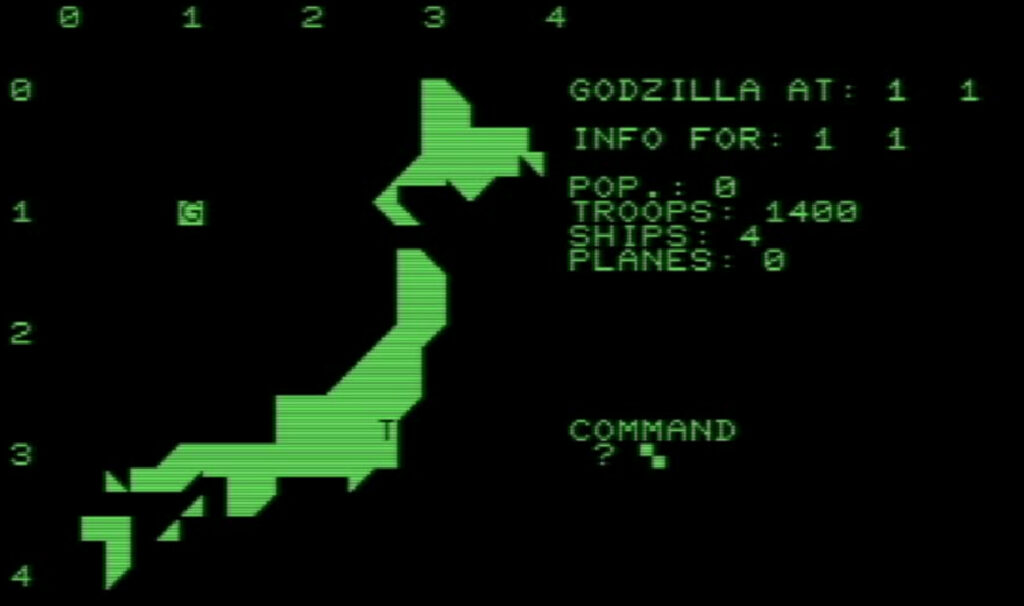
A giant monster emerged from the Ocean, some distance away from Hokkaidō!
Is it hostile ?
Yes, after our battleships shot at it, it definitely turned hostile.
Godzilla! is a weird little game by Randall Lockwood released in the April 1980 issue of CURSOR Magazine, one of those magazines that consisted of a cassette with a few programs inside, and a page folded around said cassette. CURSOR, launched somewhere in 1978, was specifically for the Commodore PET.
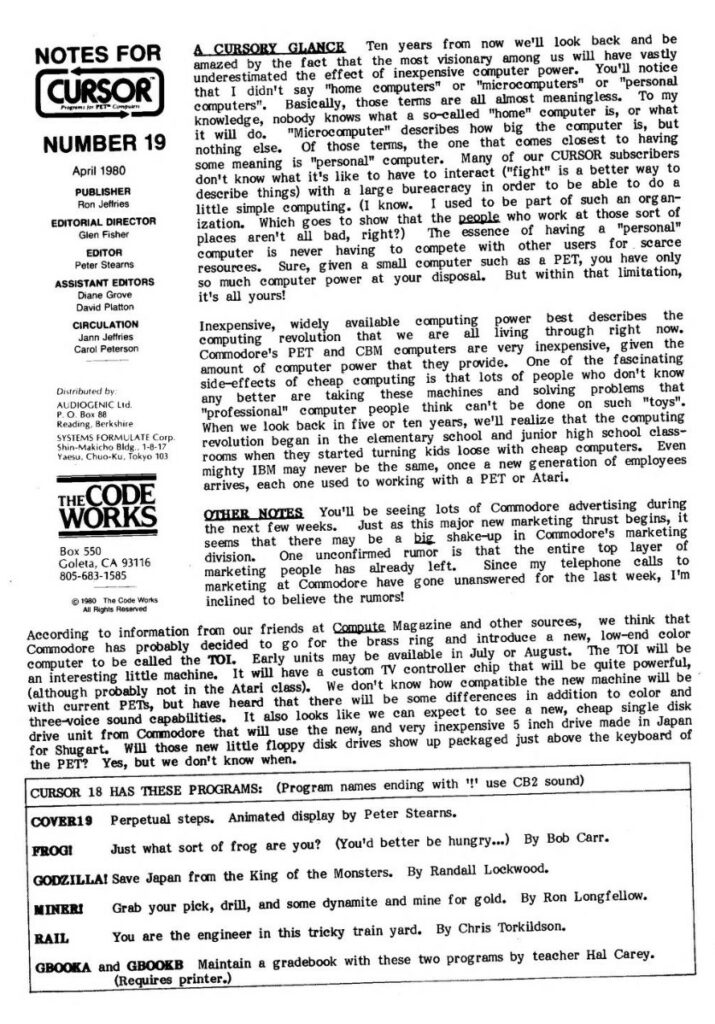
In Godzilla!, later ported to the Commodore 64, I must project Japan from the famous Kaijū. More specifically, the acceptable losses are 20 million inhabitants. It’s nice to know you are dispensable!
To fight against Godzilla, I have all the resources the Japanese self-defence force and its allies can muster : ships, soldiers, planes, missiles and even atomic bombs. Let’s hope it does not come to that. The ships, men and planes are distributed on a grid, while the missiles are part of an off-map reserve.
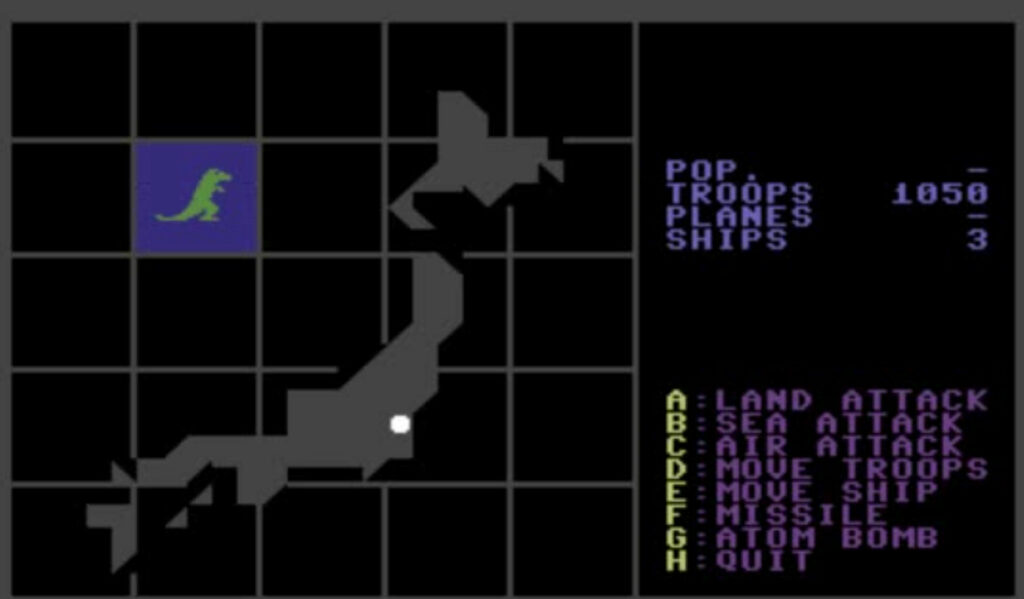
As Godzilla is first detected in the middle of the sea, I start by engaging it with my battleships. It is wounded, but of course not enough, and my brave sailors sustain casualties.
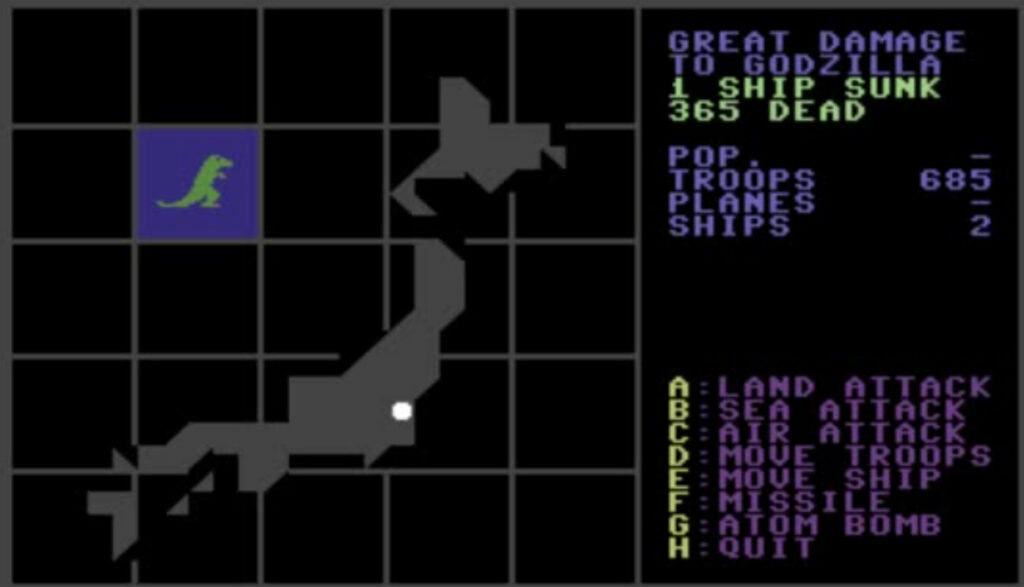
As Godzilla carries on its march on Japan, I attack it once more with my ships, and then, as it enters a cell with very few ships, by airplanes from Hokkaidō.
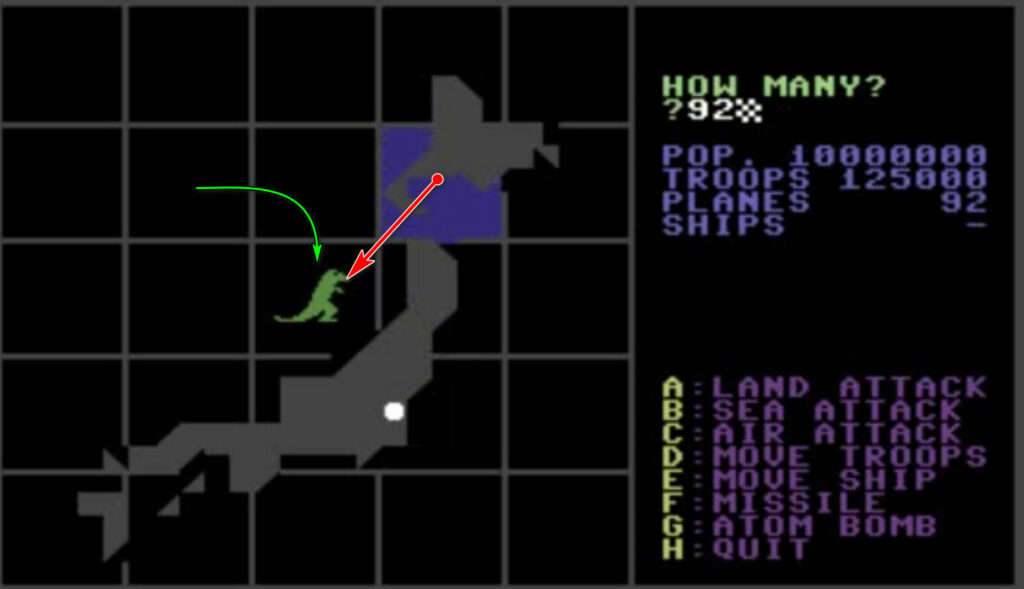
It manages to somehow destroy 30 or more of my planes, and carries on its march, reaching land. Time for my land troops to engage combat !
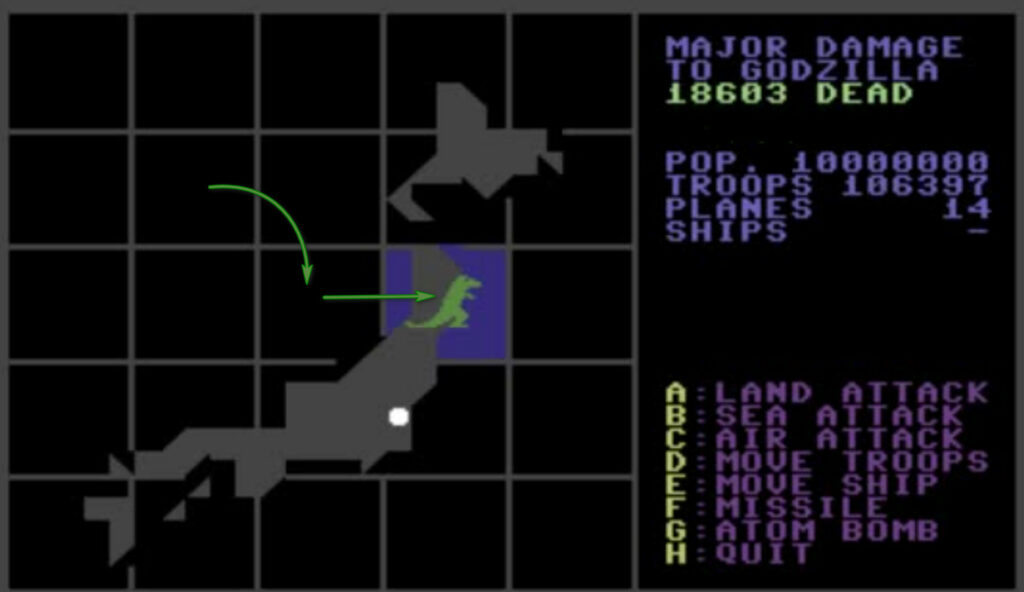
18 000 dead soldiers, and some more damage to Godzilla, who has a lot of HP indeed.
If 18 000 dead soldiers was a tragedy, no one could describe what came next : Godzilla attacked Japan’s Northern island in a rampage, killing no fewer than 5 million civilians. I don’t know how it can be even possible for a monster to kill that many people, and I don’t know why I was not sacked immediately either.
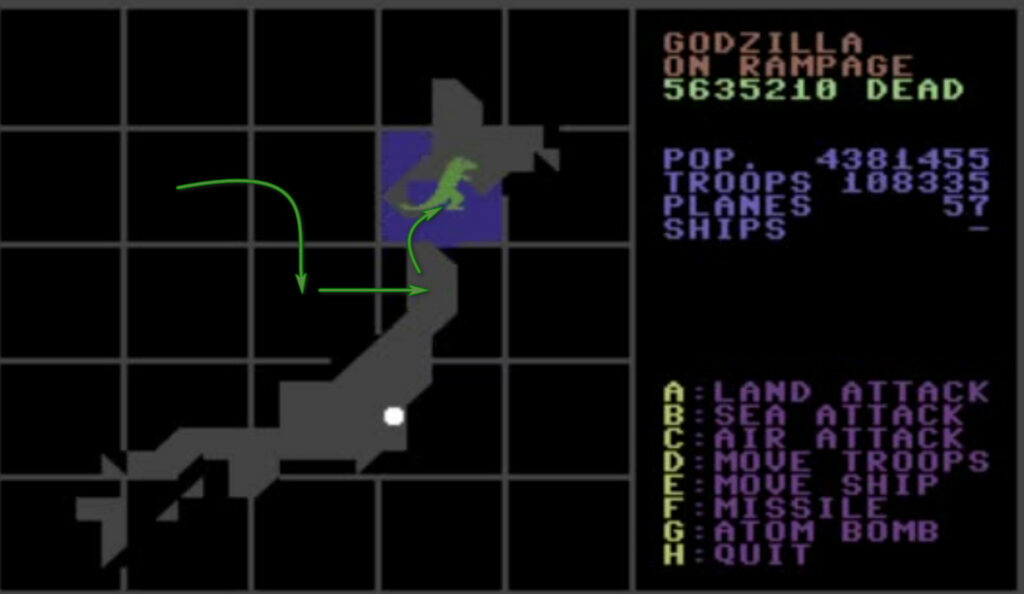
There is no time to attack Godzilla when it is on a rampage, but happily enough it then decided to circumnavigate Hokkaidō, allowing me to attack it some more.
It then returned for some reason in the area it first emerged from. I had not a lot of ships left there, and it was out of range of my planes, so I used another tool from my arsenal : one of my 10 missiles.
Unlike air attacks, missiles cause collateral damage, but in the middle of the ocean, the “collateral” damage is a handful of sailors – acceptable.
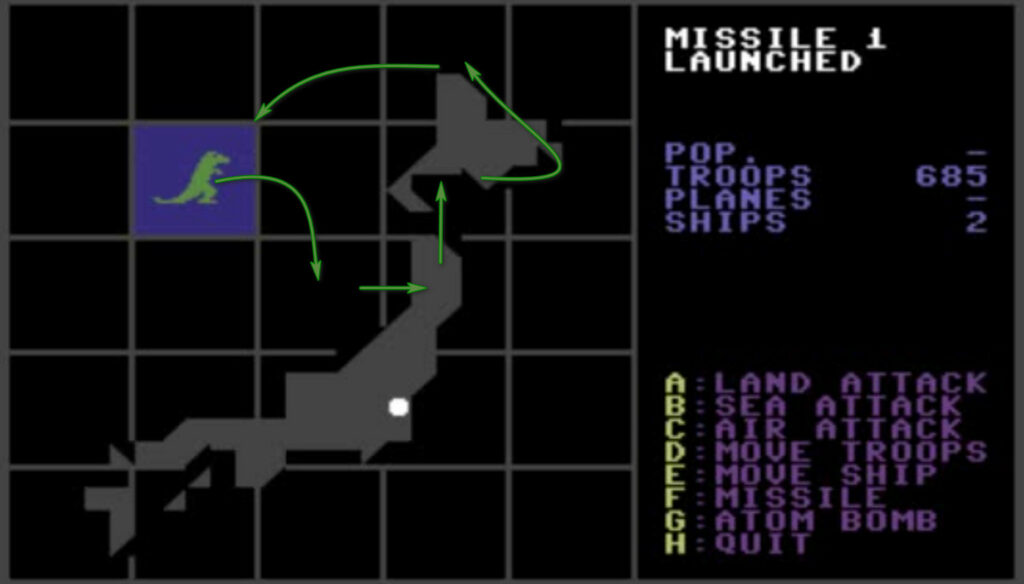
Godzilla toured the area a lot more, though not causing a lot of damage. Several air attacks and missiles later, it eventually expired. Japan was saved!
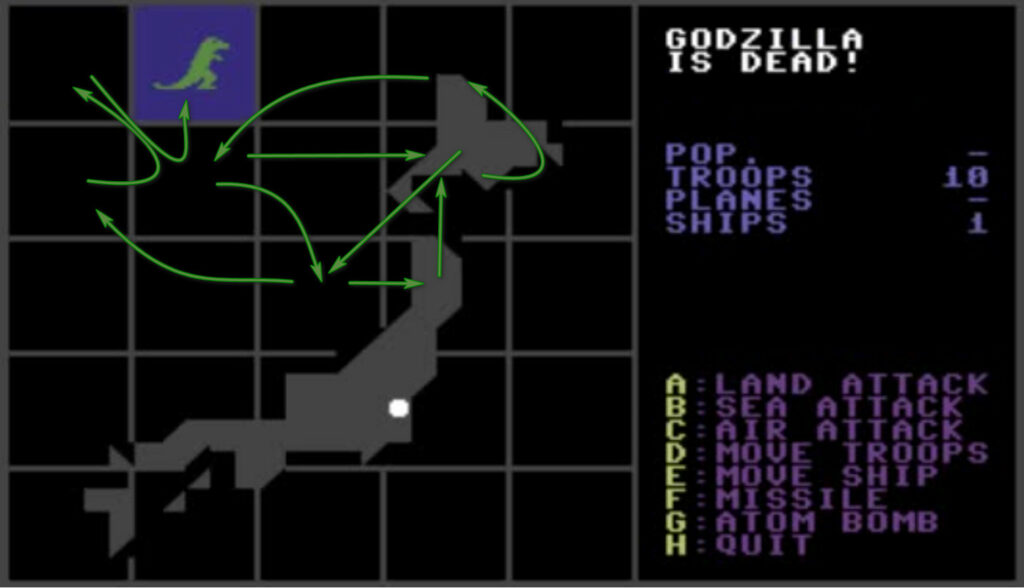
Godzilla! is an amusing distraction, but nothing more. A full session lasts between 5 and 10 minutes and is essentially a game of luck where decisions don’t matter.
- Godzilla roams randomly, instead of trying to actually attack Japan where it can actually kill a significant number of people. If it reaches Tokyo, you just got unlucky,
- When Godzilla attacks the population, the damage is totally random – maybe it will kill a couple hundred people in a large city, maybe it will kill everyone
- Similarly, the damage you cause it, and the losses you receive feel totally random,
- Finally, the game allows you to move troops or ships, but what’s the point – there is always something in your arsenal to attack it with : ships or troops, if not available planes, if not available missiles. In any case, moving troops or ships takes a full turn, Godzilla will have moved on by the time the player concentrates forces.
As you attack Godzilla every turn, it will eventually go down. The only time I lost a game during my tests was when I nuked Tokyo to see what happens.
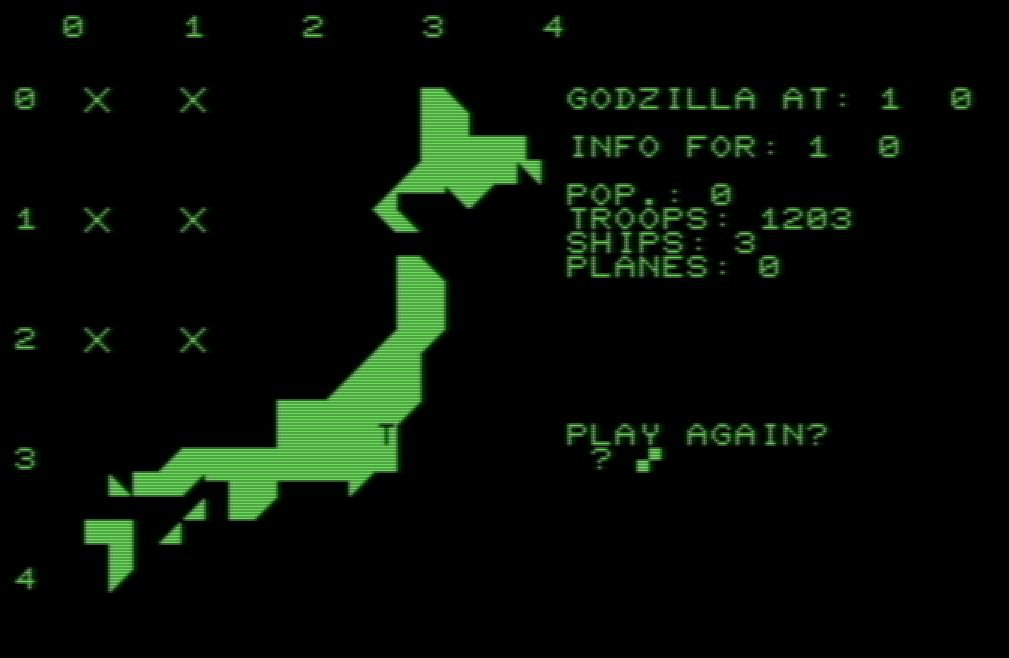
The two versions of the game are perfectly similar in terms of gameplay, the only difference is on the UI – the PET version requires the instructions that were around the cassette. You can play the PET version here and the C64 version there if you are curious.
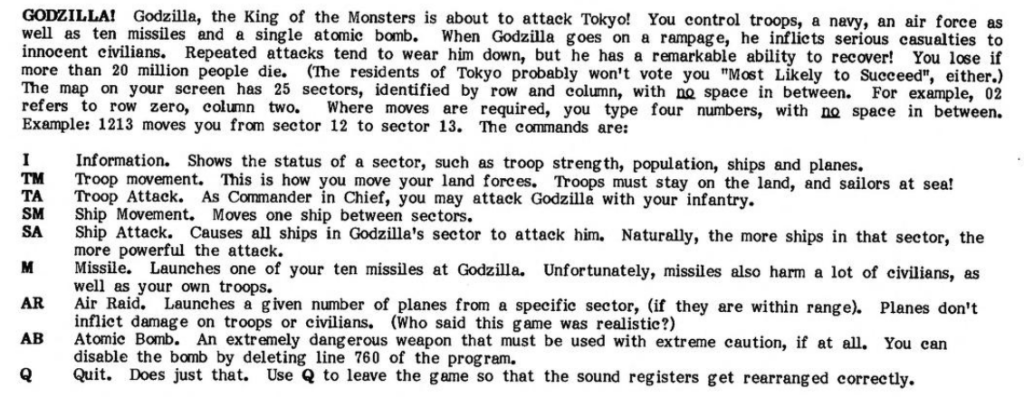
Not much else to say about this game. Randall Lockwood worked on 5 other games for CURSOR, none of them within the scope of this blog. I found a Randall Lockwood who was the former president of The American Society For the Prevention of Cruelty to Animals – I like to think it is the same person but I don’t know.
3 Comments
Love these beyond obscure cassette games.
They have the advantage of being quick to cover between two long games.
I agree, this early homebrew stuff is short and sweet. Cursor had a pretty reasonable circulation in its time. Taking these early homebrew programs apart is how many people learned to code. It’s great to see them getting a proper play-through and write-up.